Embarking on the quest for the perfect LED strip lights can be akin to navigating a luminous maze. To have a successful venture, you need beautiful and practical lights. Choose the right LED strip lights to make regular spaces look nice and save energy. This guide is called “Choosing LED Strip Lights for Your Projects.” It will help you find the right ones. It will ensure you find the perfect colors and brightness for your project. The guide is designed to match the essence of your endeavor.
Enter Tom, your seasoned guide in this luminous journey. I started exploring LED lighting in 2005 and learned a lot over the years. This guide is based on Tom’s experience. It helps you make informed decisions by removing guesswork.
When you have a reliable guide and know where to go, picking LED strip lights can be fun and full of hope. This guide will help you make your spaces visually enchanting. Let’s jump in and discover the colorful world of LED strip lights. We’ll embark on a journey to add beauty and practicality to your projects.
Understanding LED Technology
Basics of LED functionality
LED technology has revolutionized the lighting industry because it is simple and efficient. This technology uses a device. The device emits light when electricity flows through a semiconductor. LED lights are different from incandescent or fluorescent lights. They don’t have a filament that burns out or overheats. Their fundamental difference helps them last longer and use less energy. Electroluminescence converts electrical energy into light more directly, reducing energy wastage in lighting.
Energy efficiency and longevity
LED technology is widely adopted because it saves energy and lasts a long time. LEDs are known to outlive their conventional counterparts by a substantial margin. LED lights stay long, usually over 25,000 hours, so they’re a good investment. LEDs produce more light for each unit of energy compared to incandescent bulbs. This quality means you use less energy, spend less on energy, and save money on maintenance. Also, LEDs last a long time, so they don’t need to be replaced often. This helps save money and makes them a sustainable choice for lighting.
Types of LED Strip Lights
There are many different LED strip lights to choose from. They come in various styles to suit different preferences and purposes. Here’s a breakdown of the popular types:
Single-color LED Strip Lights
LED strip lights come in one color, perfect for setting a mood or lighting a space with a consistent shade. You can choose from different light colors to design and use them in many ways. The color you choose affects how a room feels and functions. Warm white creates coziness, while cool white looks modern and clean.
Tunable White LED Strip Lights
Tunable white LED strip lights are different from single-color strips. You can change the color temperature from warm to cool white. This feature lets you change the atmosphere to fit different moods and settings. These lights are great for areas that require varying lighting throughout the day. They can adapt to the day’s activities.
RGB (Color Changing) LED Strip Lights
RGB LED strips stand for Red, Green, and Blue, the primary light colors. You can choose from many colors to create a dynamic and vibrant lighting experience. The RGB strips can mix primary colors, offering many color options. People use them to create mood lighting, highlight features, or add whimsy to a space.
RGBW (Color Changing + White) LED Strip Lights
Building upon the features of RGB strips, RGBW LED strips add an additional white LED to the mix. This addition helps mix colors better and make vibrant colors and pure white light. They have a complete solution if you want to be creative with your lighting. You can still have white light, too.
High-density 180lm/W LED Strip Lights
High-density LED strip lights pack more LEDs per foot, resulting in brighter illumination. These strips have a brightness of 180 lumens per watt, making them perfect for well-lit spaces. They are ideal for task lighting or areas where bright, clear light is essential.
LED strip lights that work on AC230V have a high voltage. They are suitable for significant lighting needs. They are fit for commercial or other applications without enough space for LED drivers. You only need to connect to AC230V. It’s easy to install because they run longer with high voltage.
Addressable LED Strip Lights
You can control each LED separately with addressable LED strips, creating different dynamic lighting effects. These lights are perfect for creating detailed light shows, animations, or situations where you require precise control of color and brightness.
SMD LED Strips
SMD LED strips are small, with LEDs mounted on the strip’s surface. This design creates a smooth spread of light, making it ideal for even illumination in a space.
COB LED Strips
COB LED strips are even more compact because they have many LED chips in a small area. This makes the light seamless and brighter. This design spreads the light evenly, so there are no bright spots like other LED strips. The lighting is smooth. It is estimated that COB LED strips will soon replace SMD LED strips in most applications.
Project Goals and LED Selection
Matching LED type to project goals (mood lighting, task lighting, etc.)
When you pick LED strips for your project, consider how they will improve it. Pick LED strips with warm colors or tunable white LEDs for a peaceful and cozy environment. However, projects that prioritize speed may require ample bright and clear lighting. This can be achieved using LED strips with many lumens and densely packed together. The RGB or RGBW LED strips offer a wide variety of colors to choose from. This is ideal for projects that require a vibrant atmosphere. To select LED strips that enhance the atmosphere and function of the space, you need to understand the primary goal of your lighting project.
Importance of color temperature
The color temperature, measured in Kelvins (K), affects the atmosphere and usefulness of a room. The colors range from warm to cool. Warm colors create a cozy atmosphere, while cool colors feel modern and energetic. Neutral white, around 4000K, is a middle ground that balances warmth and clarity. It works well in different settings. Consider the color temperature of LED strips that match the mood and purpose of the space.
Essential Features to Consider
Lumens and brightness
The brightness of LED strips is measured in lumens. It plays a crucial role in lighting up a space. Kitchens and workstations need brighter light because it is more lumens. However, dimmer lights are better for creating a cozy or romantic atmosphere. The number of LEDs on the strip can also affect brightness, so it’s something to think about. We need to balance the brightness to make sure the space looks good and works well. It will be more appealing and functional if it’s too bright and dark.
IP Rating (Water and Dust Resistance)
The IP rating is important, especially for indoor or humid LED strips. If the LED strip has an IP rating of IP65 or higher, it can handle water and dust. This makes it durable and able to perform well in harsh conditions. LED strips with a higher IP rating would be suitable for a pool, patio, or kitchen. Choosing the proper IP rating protects your investment and keeps the lighting reliable.
CRI (Color Rendering Index)
The Color Rendering Index (CRI) measures how colors look under a light compared to sunlight. A higher CRI value(close to 100) means colors look more real. This is important in art studios, stores, and photography studios. Choosing LED strips with a high CRI makes colors look vibrant and realistic. This improves the space’s visual appeal and functionality.
Power Requirements and Sourcing
Calculating power needs
To make LED strip lights work well and last long, it’s important to know their power needs. To understand the strip, see the wattage per foot or meter. The manufacturer often specifies this. To find the total wattage requirement, multiply this value by the length of the strip you will use. It’s a good idea to add 20% extra in case of unexpected delays. This helps keep things running smoothly. This exercise helps your LEDs work correctly and prevents accidents from mismatched power.
Choosing the proper power supply
You can pick the proper power supply once you know how much power you need. Ensure the power supply matches the voltage and current of your LED strip. Ensure the power supply consistently provides 12 volts if your strip needs it. The current rating should align with the LED strip’s demands and be expressed in amperes. Pick a power supply with a slightly higher current rating to avoid overloading. Some LED strips have recommended power supply units, easing this selection process. To have a smooth installation, it’s important to match the power supply with the LED strip.
Control Options
Remote controls
You can use a remote control to easily change the lighting effects on your LED strips. You can easily change colors, adjust brightness, and switch between different modes with a simple click. These modes include flash, fade, or strobe, allowing you to create the perfect ambiance. Some remote controls let you choose different colors and modes to create the perfect atmosphere. People love using remote controls because they are convenient and easy to use. They are especially popular in places where simple controls are preferred.
Mobile apps
Smart lighting solutions have brought mobile apps as a modern way to control LED strips. You can use these apps on Android and iOS to control the lighting setup in more detail. With your smartphone, you can control the colors, brightness, timers, and lighting scenes. Certain apps have a tool that picks colors. You can copy any color by pointing your phone’s camera at it. Controlling your lights with your phone is convenient and lets you set the mood.
Voice control
When you use voice control with smart home systems like Amazon Alexa or Google Assistant, it makes the user experience better. It allows you to control your LED strip lights without using your hands. You can control the lights using voice commands. Turn them on or off, adjust brightness, or change colors. This feature is convenient when your hands are full or in a different room. You can control your LED strips with your voice when you link your LED strips to smart home systems. This makes them more than just regular lights. This brings in a new level of interactivity and modernity that is both useful and exciting.
Installation Tips
Surface Preparation
Before installing your LED strips, ensure the surface is clean and dry. Dirt, dust, or grease can stop the sticky backing from sticking, making the strip fall off. Before you proceed, cleaning the surface using a mild cleaning solution is essential. Make sure it dries completely. The surface needs to be clean for a good LED strip installation and provide a solid foundation.
Measuring and Cutting
Precision is critical when measuring the length of the LED strip you need. LED strips have cut lines every 3 or 6 LEDs. You can customize the size without damaging the strip. Use a tape measure to find the exact length you need. Cut on the designated lines to keep the strip intact. This careful approach makes the installation look and work great.
Adhesive and Mounting Options
LED strips usually have sticky backing, but you might need extra help for outside or bumpy areas. Mounting clips or brackets help keep the strip secure for a long time. You can also use double-sided tape or special glue for mounting LED strips. Ensure the installation is secure to keep your investment safe and looking nice. This will prevent sagging or falling in the future.
Compliance and Safety
Understanding Local Electrical Codes
Following local electrical codes is important because it ensures a safe installation. Before you start installing, make sure you know the electrical rules in your area. This might encompass aspects like wiring standards, permits, and inspections. Following the rules can avoid problems, legal issues, and penalties.
Safety Precautions During Installation
Safety is paramount when working with electrical installations. Before you start installing, make sure to turn off the power to prevent electrical shocks. Utilize insulated tools and wear protective gear like rubber gloves and safety goggles. If you don’t know how to install something or feel uneasy about it, it’s better to seek help from an electrician. By being cautious, you can keep everyone safe during the installation. This will make it go smoothly and without any hazards.
LED Strip Sizes and Chip Types
As you explore LED chips, you’ll discover various options for different lighting needs. The numbers like 2835, 3528, 5050, 5630, and 5730 denote the dimensions of the LED chips. For instance, a 5050 chip is 5.0mm x 5.0mm. Each chip type has a unique blend of size, brightness, and energy efficiency, catering to different lighting applications. Use more minor chips like 2835 and 3528 for small spaces or gentle lighting. Use larger chips like 5050 or 5730 for brighter light in well-lit areas.
Water and Solid Protection
IP Levels
Understanding IP levels helps determine how well your LED strips are protected from water and particles. The IP rating is usually followed by two digits, the first representing protection against solids like dust and the second indicating water resistance. For instance, an IP65-rated LED strip is dust-tight and can withstand water jets, making it a suitable choice for outdoor installations.
Waterproof Strips or not
The decision between waterproof and non-waterproof strips hinges on the installation environment. Use waterproof strips for durability in wet areas, like outdoors, bathrooms, or kitchens. They will stay durable and perform well, no matter the weather. The added protection keeps the LED chips safe from water and humidity. This makes your LED strips last longer.
Verifiable Quality
When buying LED strips, look for brands with UL, CE, or RoHS certifications for peace of mind. The certifications prove the product is safe, works well, and meets environmental standards. This makes it reliable. If you buy LED strips that are certified for quality, you can trust that they’ll work well.
Where to Buy LED Strips
To find the best LED strip lights, you must ensure they are of good quality and come from a trusted source. When deciding between buying online or in person, consider the seller’s reputation for quality and customer service. Find sellers with precise product details, warranty terms, and good customer service. Reading customer reviews and seeking recommendations can also guide you to reputable vendors.
If you need to buy a lot of LED strips for your project, contact Unitop, a trusted supplier. When you buy in bulk, you can get discounted rates, which saves money for big projects. In addition, reliable suppliers like Unitop can provide personalized LED strips and technical assistance for your project.
Conclusion
You’ll find many lighting choices when you look at the different LED strip options. These options can transform your spaces into beautiful visual experiences. When you have all the information, it’s easier to choose the right LED strip for your project. When you choose LED strip lights, you can make your spaces more beautiful and practical. Choosing the correct LED strip light is more than just lighting up a space. We select colors and brightness to improve spaces to create the desired atmosphere. As you start your next project, remember that you can add color and vibrance with an LED strip. Your future project can be a stunning display of colored lights that are both elegant and useful. It will demonstrate how LED strip lights can transform a space.
Related Articles

Tom is now the Sales Manager of Unitop (China) Co., Limited. He has been in the LED Lighting industry ever since 2005. He is an expert in sales & marketing, and factory management. He likes bodybuilding, and he is also a crazy Apple Fan! He is a hard-working guy and loves to learn and try new things.
Email: tom@unitopledstrip.com WhatsApp: +86-18680307140

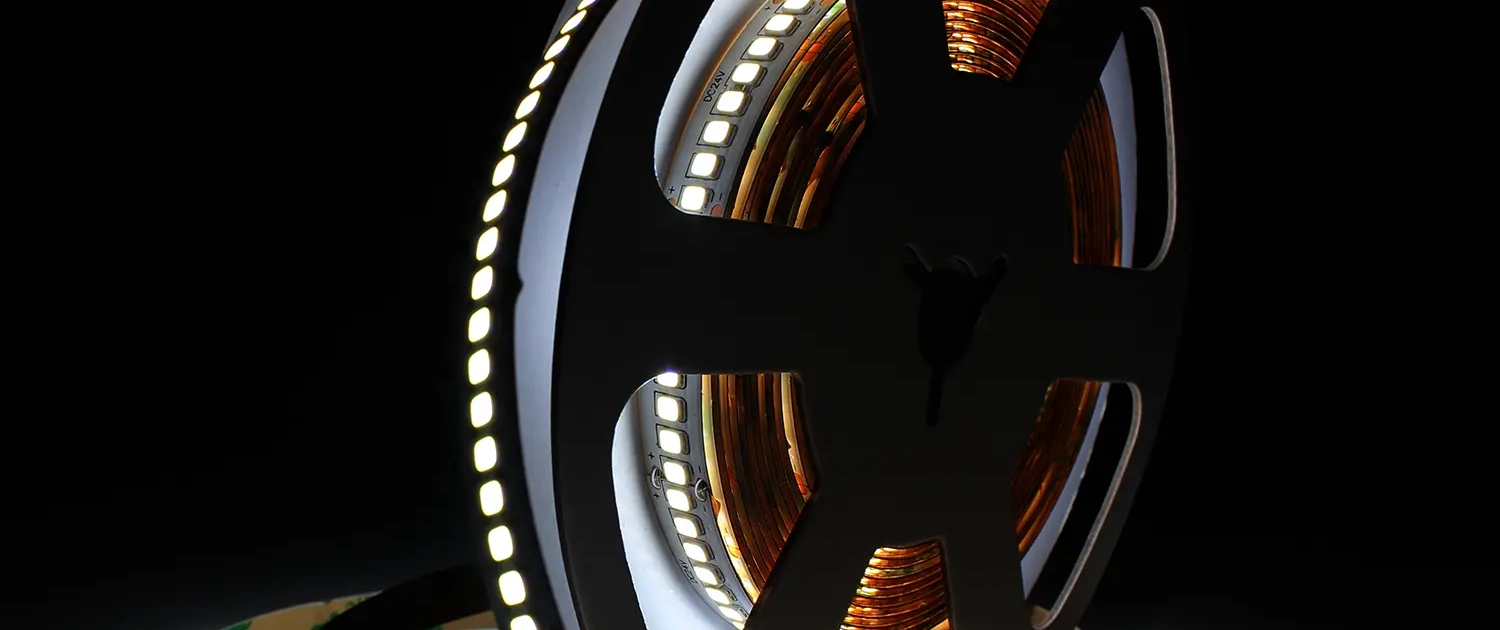
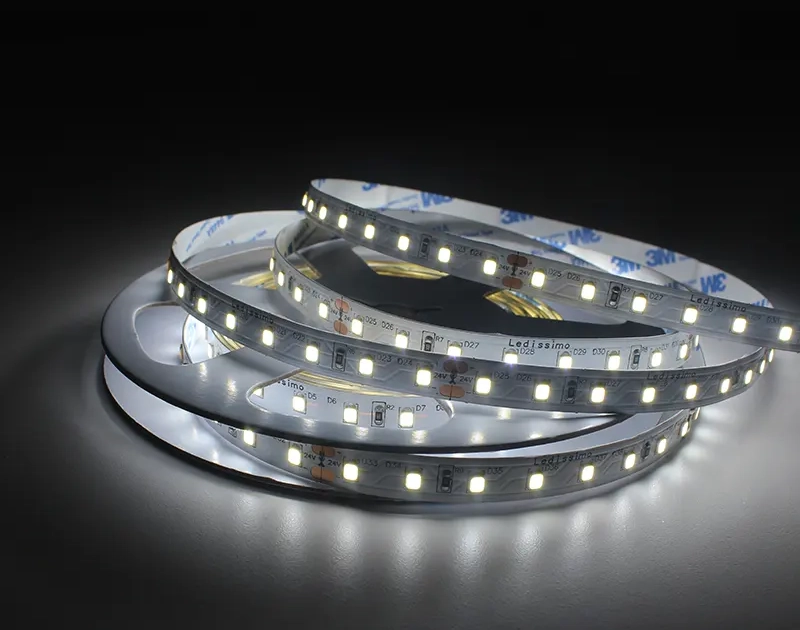
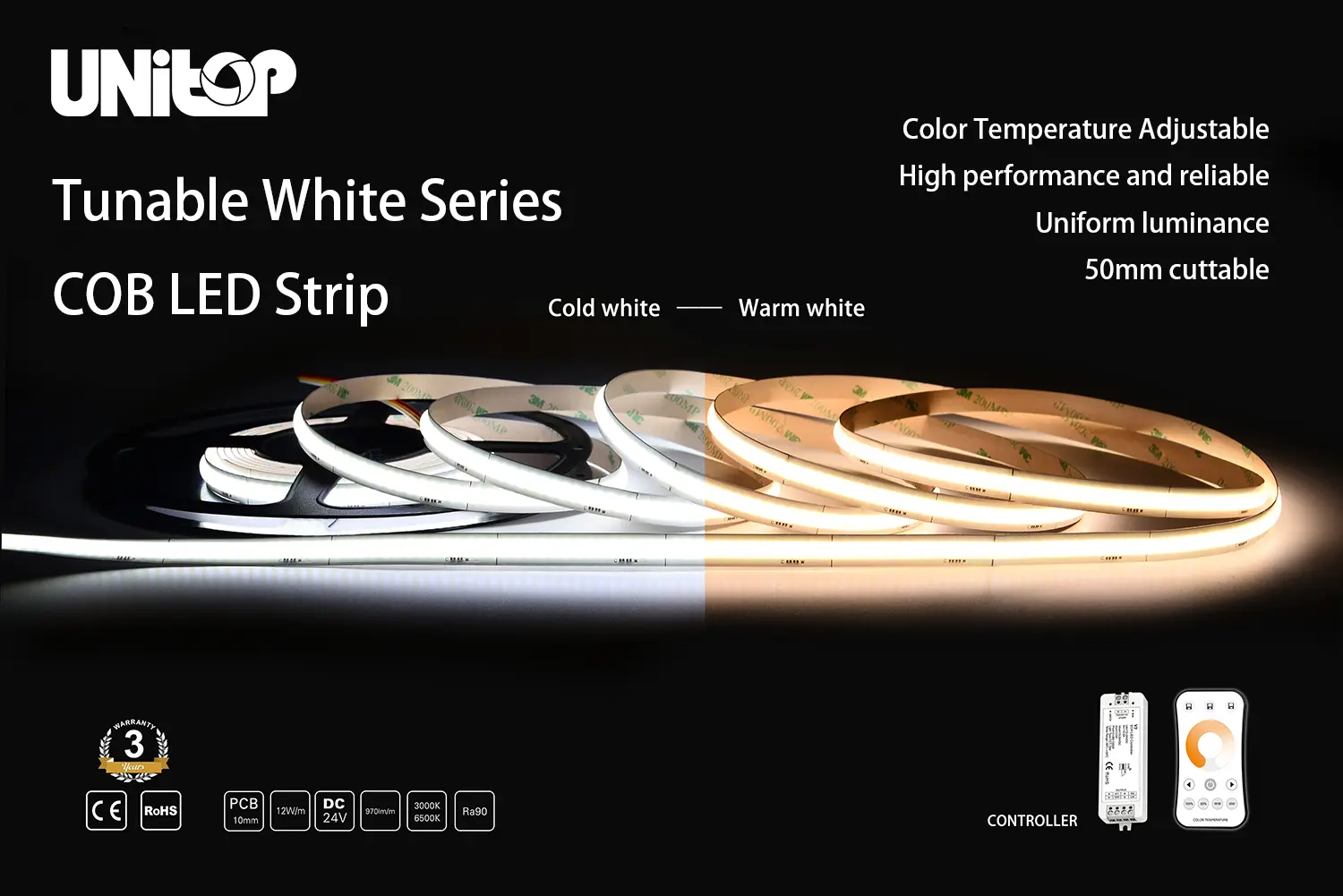
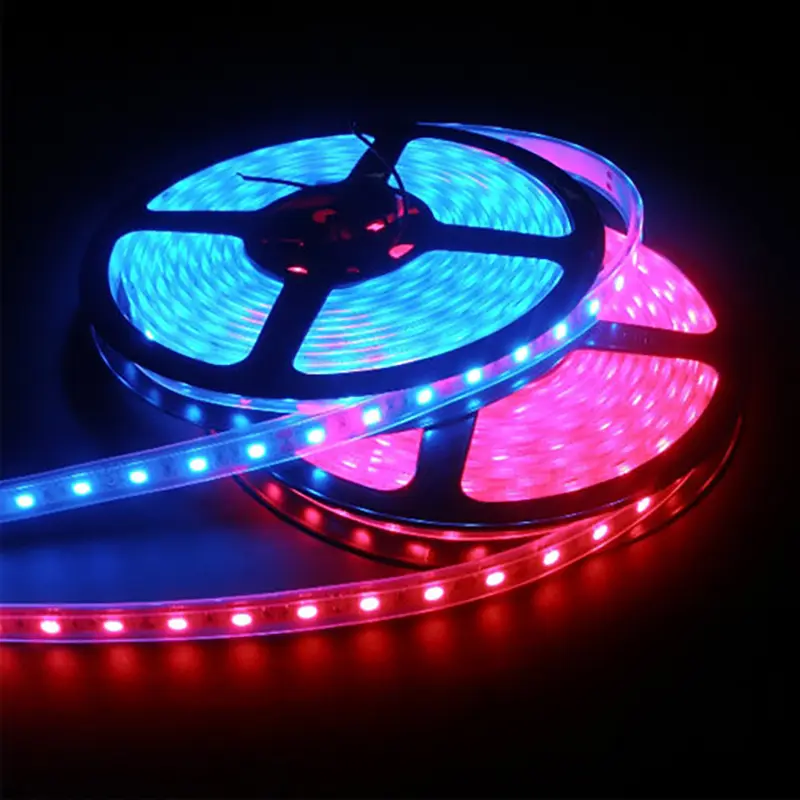
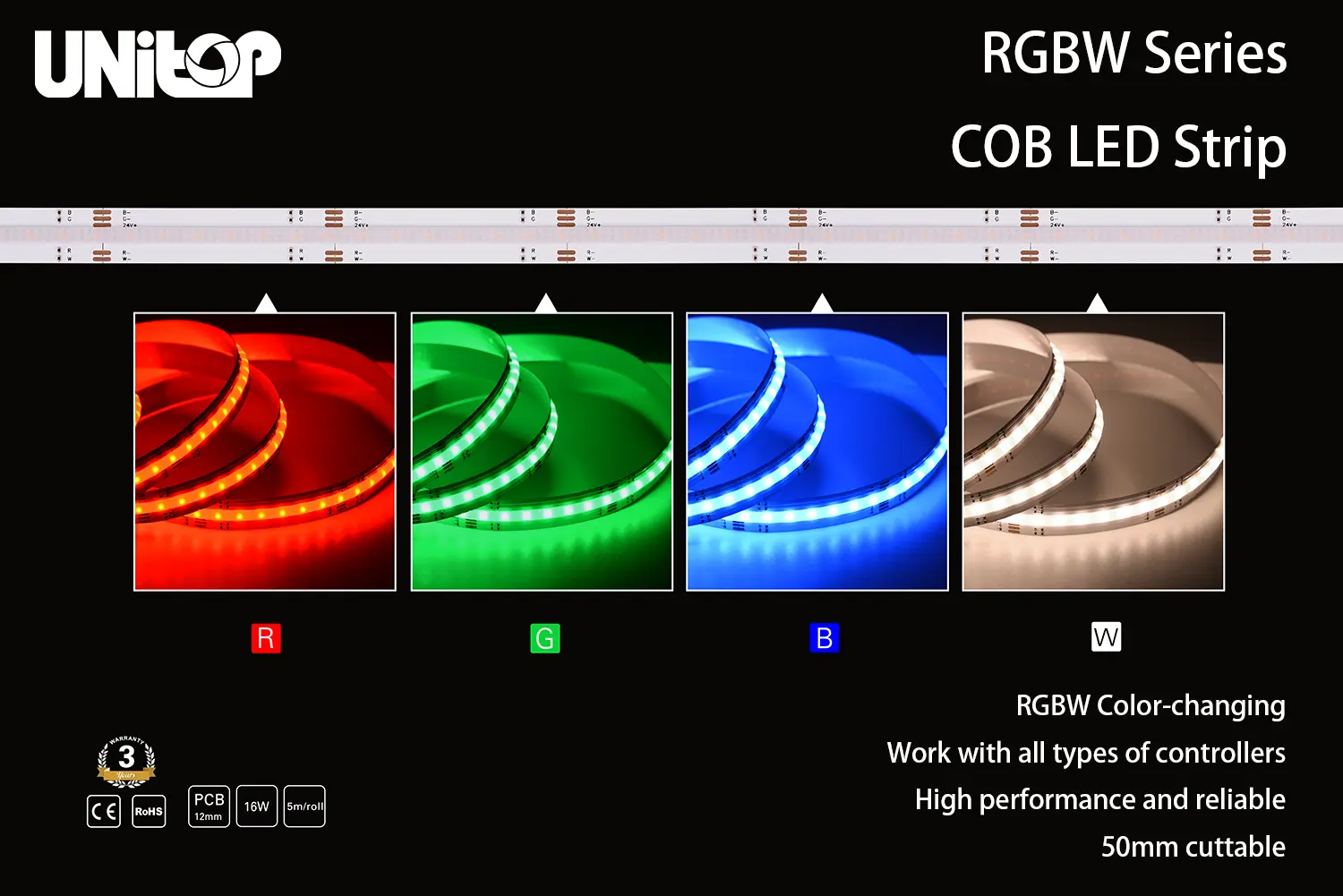
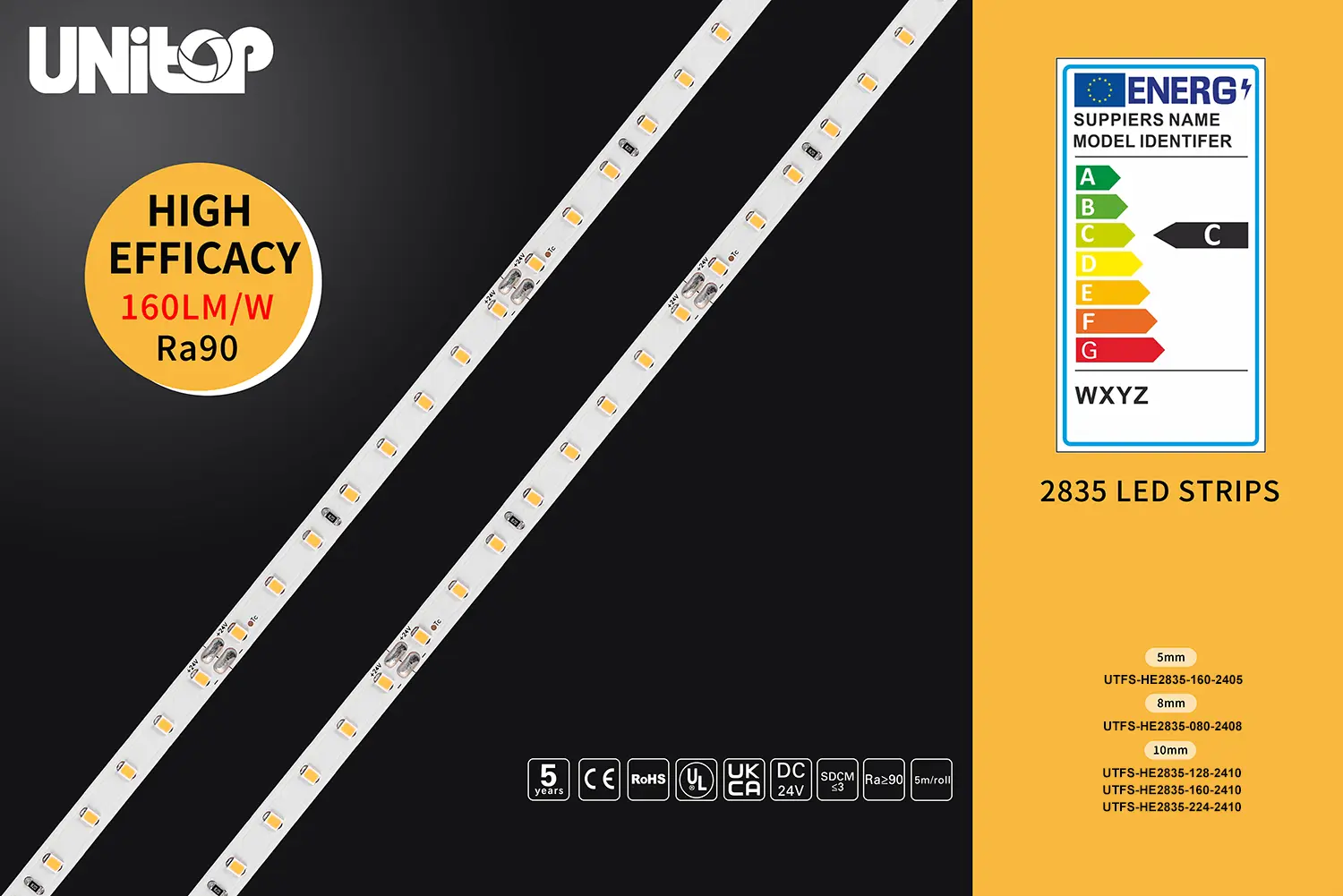

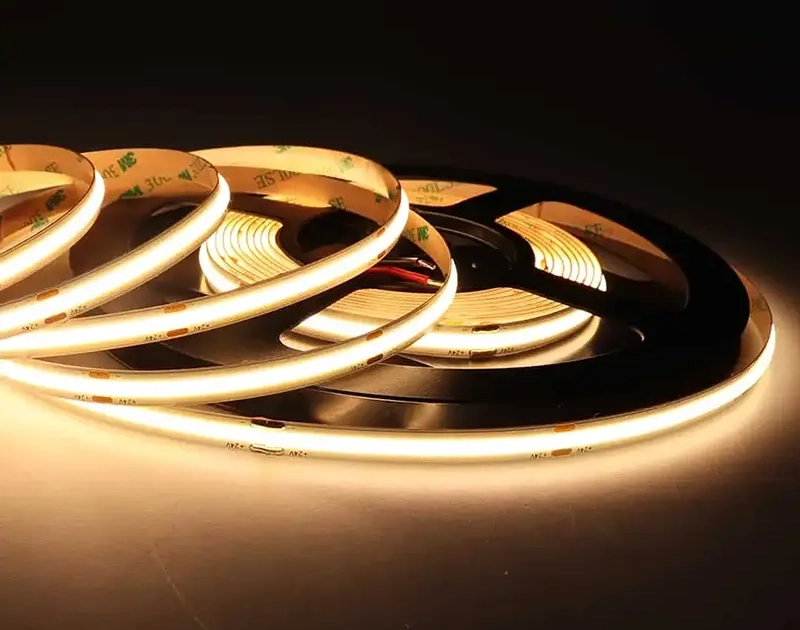
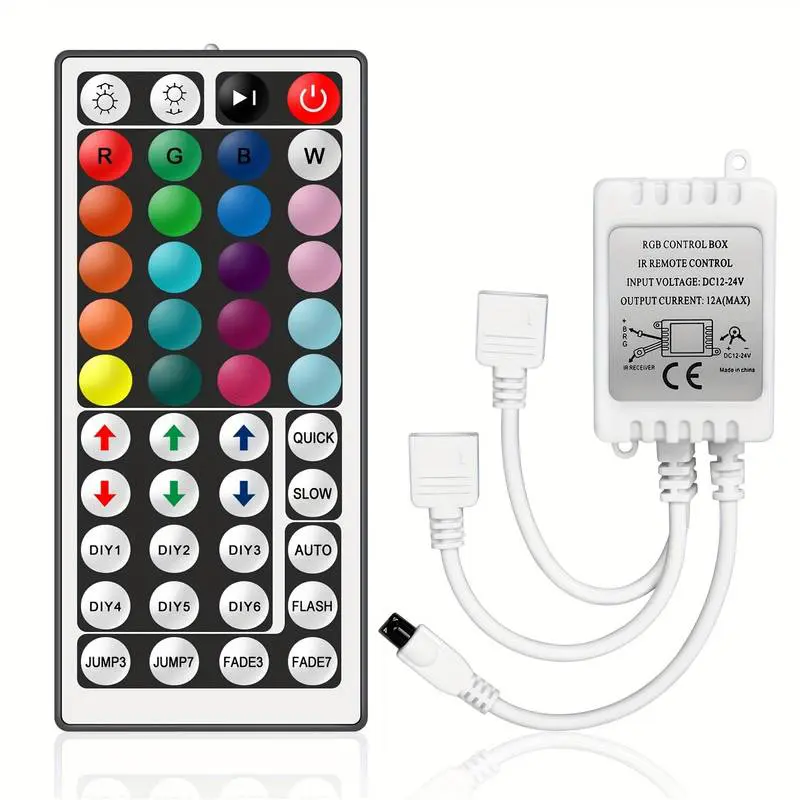
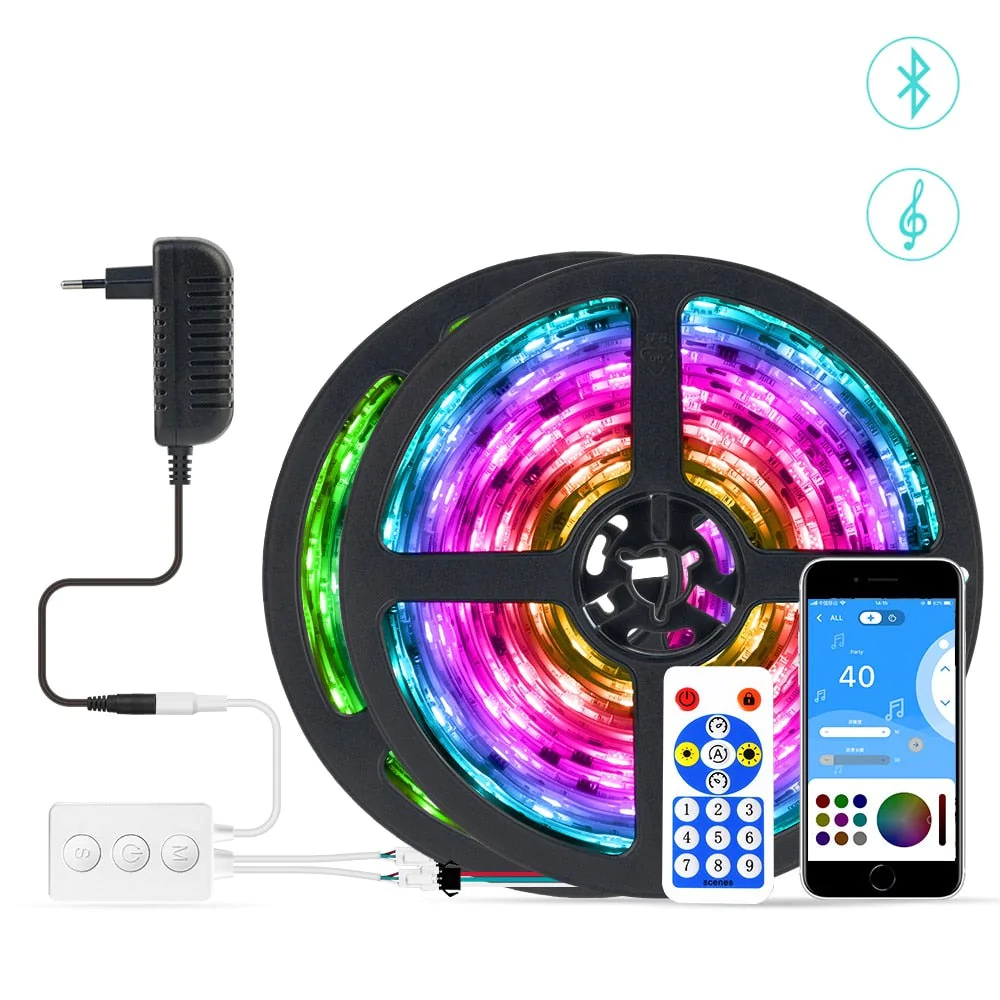
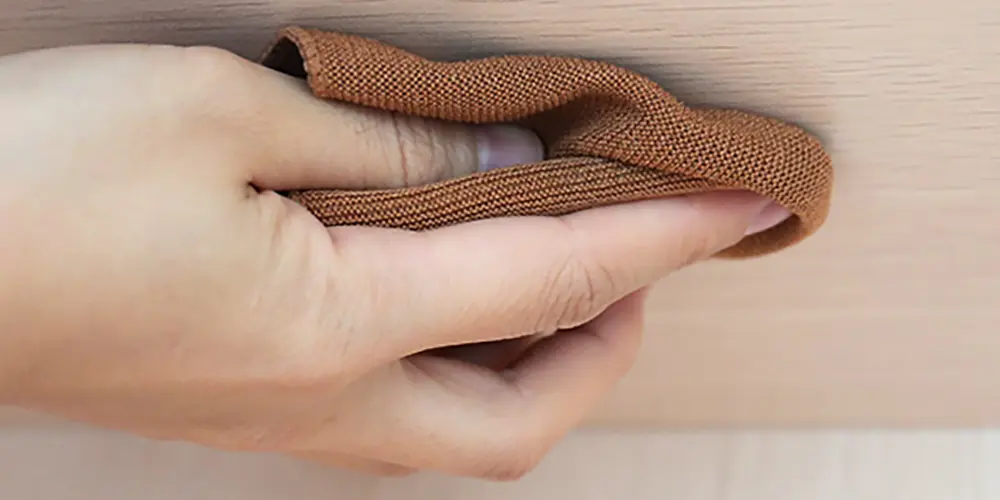
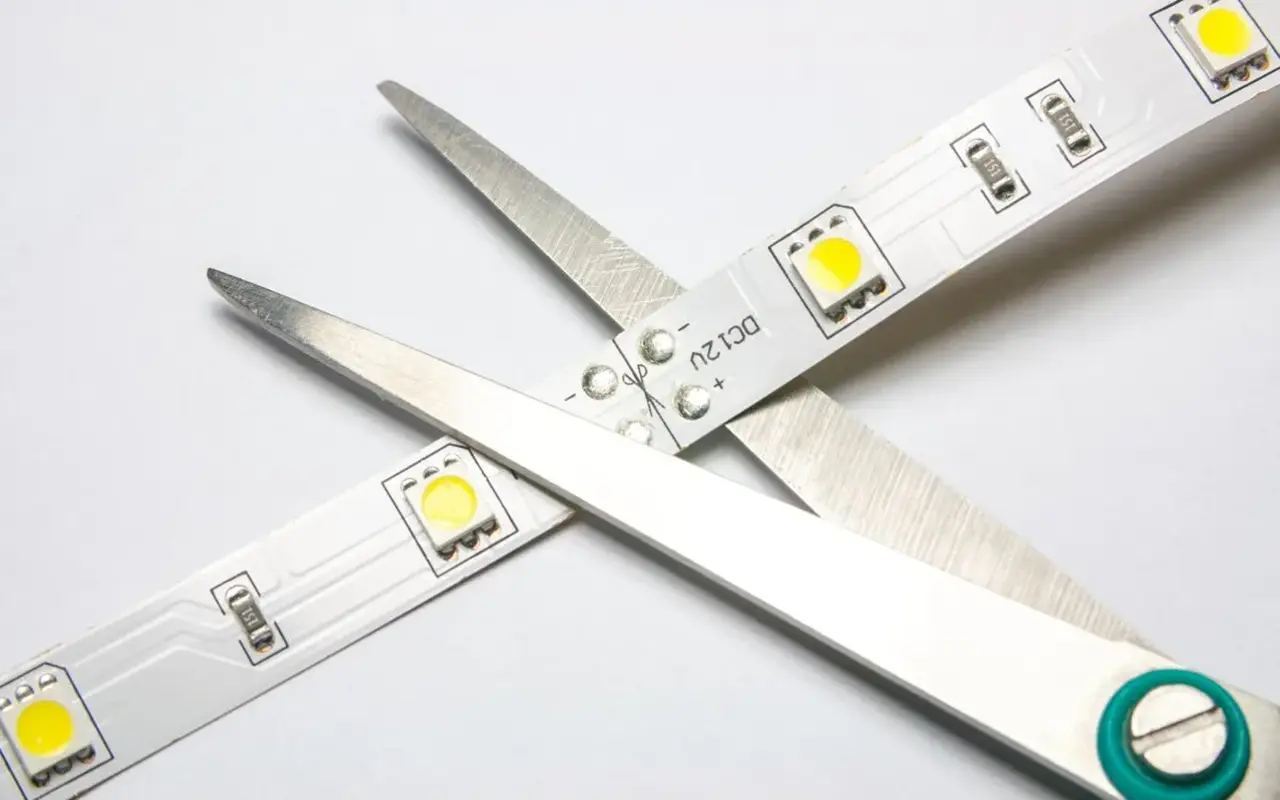
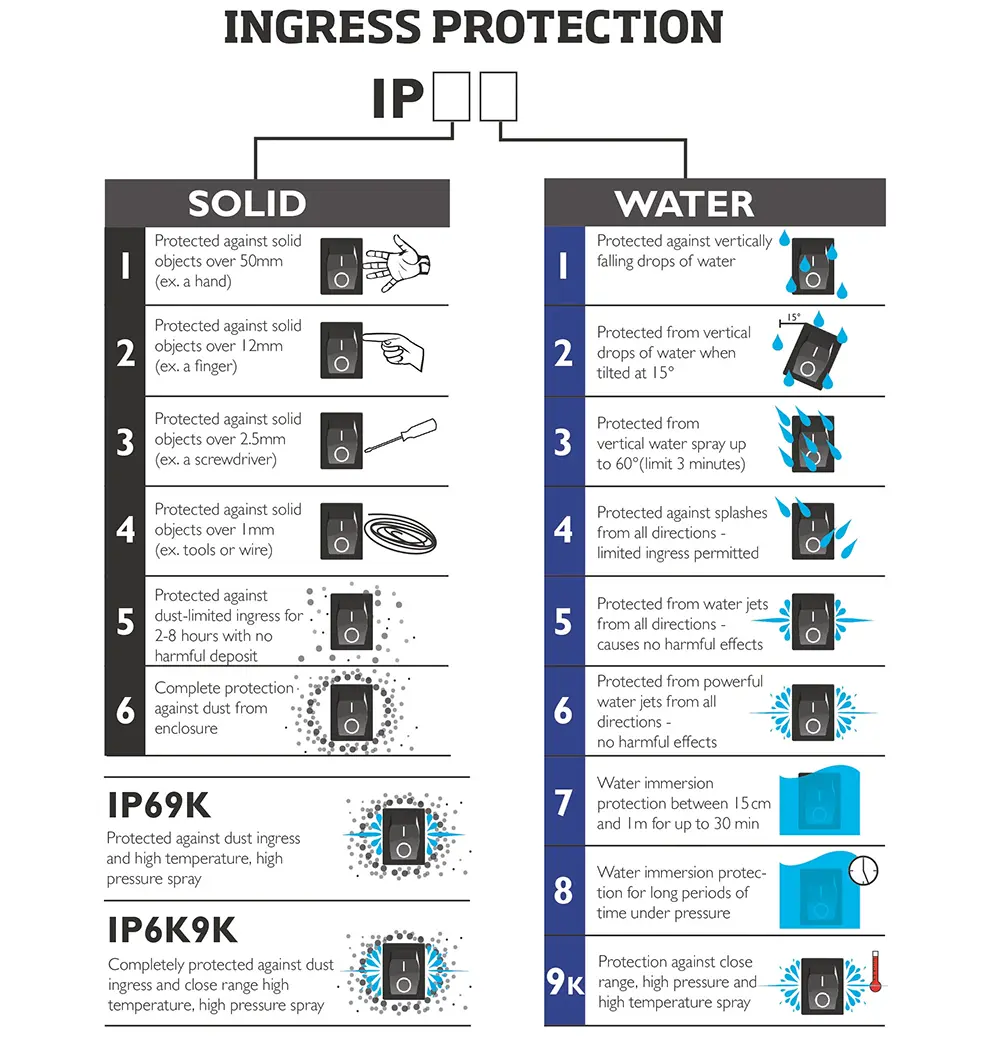
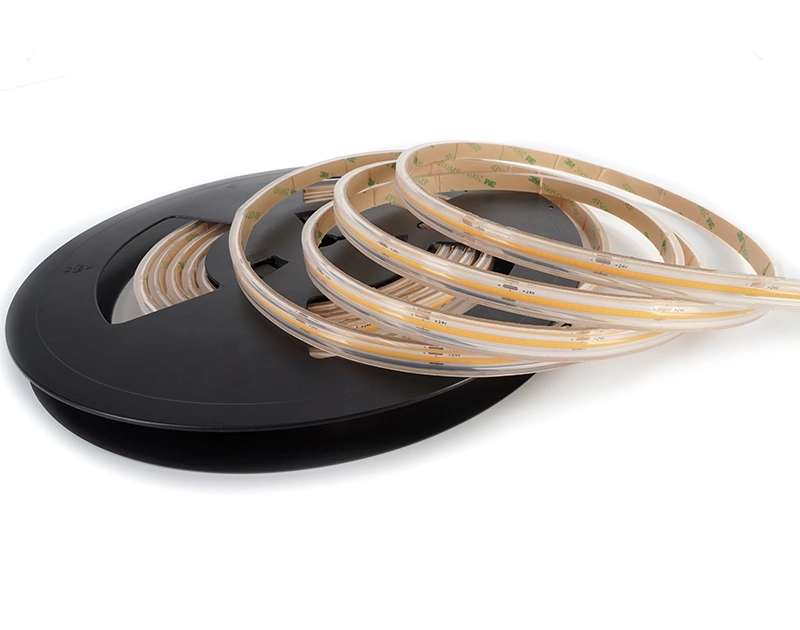

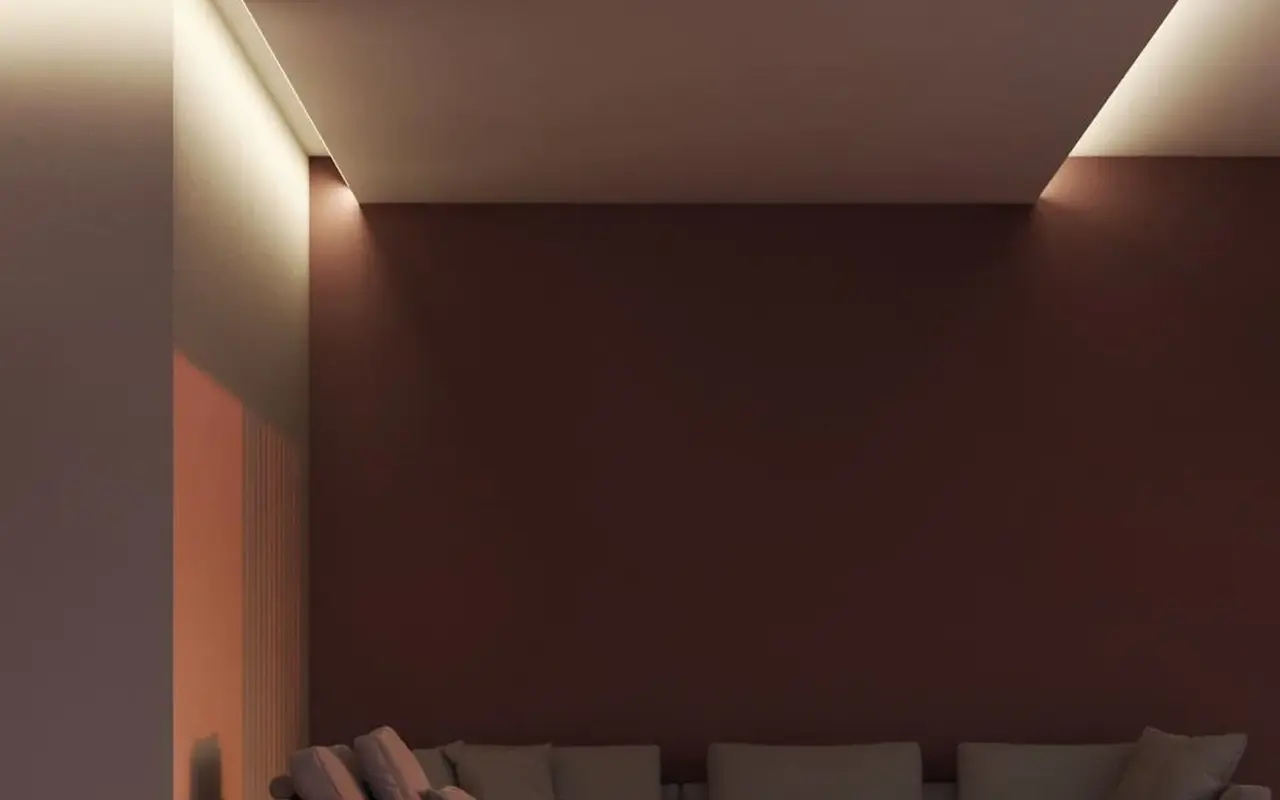

Leave a Reply
Want to join the discussion?Feel free to contribute!